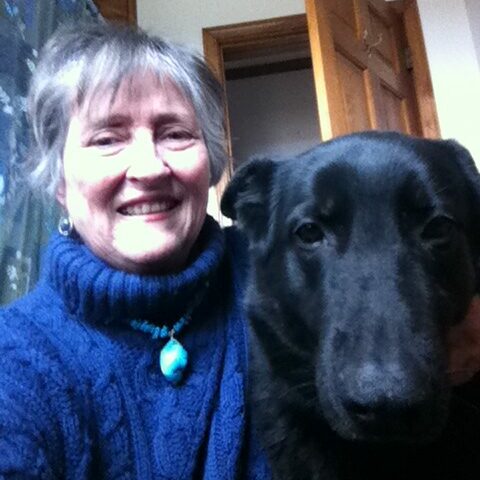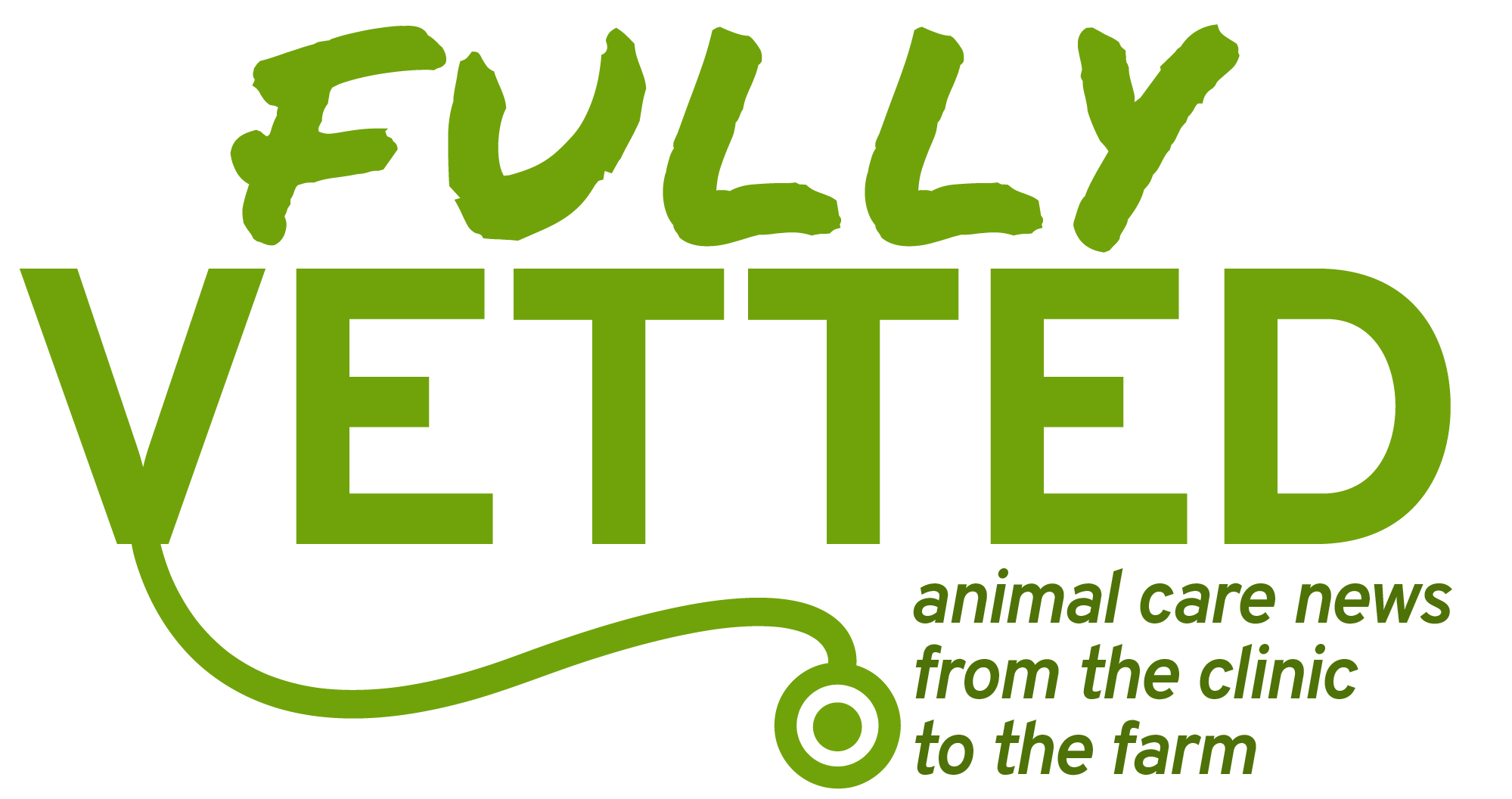
Episode 70
Treat the Whole Patient: Customizing Care with Homeopathic Remedies
With Christina Chambreau
MIDWEST VETERINARY CONFERENCE PREVIEW SERIES See All Episodes »
You know the phrase: The whole is greater than the sum of its parts. Synergy is more than a corporate buzzword; the concept is also the foundation of holistic medicine, which aims to treat the entire animal, rather than just the symptoms. Under the umbrella of holistic medicine is homeopathy, a system of medicine that is based on the principle that “like cures like.”
In this episode, Dr. Christina Chambreau joins us to introduce us to the possibilities of homeopathic medicine. The owner of Healthy Pets, People and Planet, Dr. Chambreau is a co-founder of the Academy of Veterinary Homeopathy and a recognized authority on homeopathic veterinary medicine. Listen in as she introduces us to homeopathic medicine and gives us a sneak peek into her MVC sessions, which offer an alternative approach to treating both animals and the planet.
Episode Guest

Christina Chambreau
DVM, CVH
Dr. Chambreau is an internationally known homeopathic veterinarian, speaker and author. Her mission is to empower people to heal themselves and their animals in ways that heal the planet. | Learn More »
Registration for the 2023 Midwest Veterinary Conference is open! Featuring 300+ hours of live and on-demand CE in 25 tracks, 75 expert speakers, and more than 100 exhibitors, this is another event you won’t want to miss!
Photo by Nataliya Vaitkevich on Pexels
Transcript
Mia Cunningham: Thank you for joining us today. My name is Mia Cunningham and along with my co-host, Krysten Bennett, we are thrilled to welcome Dr. Christina Chambreau to the show, to talk about topics she’ll be covering at the 2023 Midwest Veterinary Conference. Dr. Chambreau, welcome to the show.
Christina Chambreau: Thank you! I’m so excited that you all are doing these podcasts so that more veterinarians can hear about different approaches.
Krysten Bennett: Absolutely. We’re glad to do it. So, Dr. Chambreau, you will be speaking in the Holistic and Integrative Medicine track at the MVC. Can you kick us off by just talking a little bit about your background and how you got interested in holistic medicine?
CC: Okay, so I started working actually at a veterinary clinic in Japan. I was raised in the Air Force. On the base we had, of course, our local vet, and I worked for the total of 25 cents an hour. Back in the ’60s, that’s what they paid us Air Force kids to do any jobs. I at that point decided I wanted to become a veterinarian.
I went to Colorado State to do my pre-vet, and that was in ’69, ’70. At that point, I was told, “Don’t bother to apply. Your grades aren’t high enough.” I said, “Well, they’re the same as the cume of the class.” And he said, “Oh, but you’re a woman. We only take two women out of a class of 100, so you have to compete with 400 women, when the men have to compete with a smaller number, because there are 98 men getting in.” So I had to quit, because I had some family issues, to help my parents with. Then eventually, I went to pharmacy school for a year and then went to the University of Georgia and applied the year Title VIII started getting enforced. To the ladies out there: It’s all because of Title VIII and three women in Congress who got Title VIII passed. Because then, as we all know, it jumped to 50 percent, and now it’s almost 90 percent women in veterinary school. So that was how I got started.
In my junior year, I don’t remember at all how I stumbled on it, but I did a two-day class in acupuncture for animals with two of the leaders, Grady Young and Marvin Cain. I came back to vet school, and in my senior year, I got to do an experiment where we brought in beagles from Michigan that had open-angle glaucoma. I used Grady Young’s acupuncture points on one of the dogs and Marvin Cain’s on the other group, and then there was a group that we didn’t do anything with. It didn’t work. Now, I didn’t know why at that time; I had no further understanding. So I didn’t think twice about it, graduated from vet school in 1980, and was working in the D.C. area at a clinic when a gal came in and said, “Would you draw blood and send the results to my homeopathic veterinarian who’s an hour and a half away from here.” And I said, “Homeopathy? What’s that?” I’d never heard of it. So she told me about using it in her psychology practice and how important and fabulous it was. So I called the veterinarian who had taken the very first veterinary course in homeopathy, which was only a two-day course, and he also only learned how to give remedies for problems—sort of in a conventional or allopathic way. And he didn’t understand how it really worked, but he sent me two remedies for bladder problems, and I put them on the shelf.
My boss was seeing a woman later on who had a cat that had been on antibiotics for three years. Nothing was helping; two days off antibiotics, and the cat would be ill again. So I offered the homeopathic medicine. She said, “Well, I’ll try it, but tell me more.” I said I don’t know anything more about it, but Dr. So-and-So said it works. So, for two weeks, the cat got homeopathic medicine, and for the next nine months that I was at that practice, the cat was off antibiotics and doing well. And that was the beginning.
By 1987, I was lecturing around the world, speaking at conventional veterinary conferences, dog clubs, health food stores, teaching, writing, being passionate about holistic approaches—not just homeopathy. So I do pet health coaching and continue to educate people, and then I also work with Holistic Actions Academy, which empowers people to stay on the holistic path that they want to be doing.
KB: Wow, that is quite a journey. Thank you for sharing that with us. Now, the reason that you’re here today is to tell us a little bit about your Holistic and Integrative Medicine session topics for the 2023 Midwest Veterinary Conference. Can you give us a summary of what you’ll be talking about?
CC: Yes, I’d love to do that. It’s really sort of two parts. One set of talks that I’ll be doing is specifically about homeopathy. Now, a lot of people have confusion between homeopathy and holistic. Holistic is the umbrella of, looking at animals and people and the world as a whole. Everybody’s interconnected. We all impact on each other. Water, air, plants, everything: It’s a whole. As a conventional veterinarian, I would mostly be focused on stopping a symptom. An animal came in with an ear problem, and I’d be looking at how can I stop the itch, decrease the inflammation, and maybe he is there something underlying like a low thyroid problem that’s having this happen. My focus was mostly on the symptom. From holistic perspective, we’re seeing the ear right now is only one clue that the energy field’s out of balance, and we can try different approaches. One of the approaches is homeopathy. Others would be Chinese medicine, chiropractic, etc. The one specific holistic approach that I’ll be talking about is homeopathy.
Now, homeopathic medicines aren’t best given for a particular condition. It’s an individualized medicine. So we take all the symptoms to find the one homeopathic medicine that matches this individual. So, 10 dogs with an ear problem, each one may receive a different remedy. So we’re looking for individualized medicine, and we’re focused on all symptoms they’ve ever had in the past and have currently. So there’s not separate treatments for anxiety of thunderstorms and tartar on your teeth and ear problems, anal problems. One remedy treats everything. However, having said that, because it’s easier in a veterinary conference to do it this way, my talks are the specific. So, I’m looking at the specific illnesses, even though you have to really treat the whole. Each of my sessions will start with a brief overview of homeopathy in general, so that I’ve sort of prepped people for knowing it’s not just this way.
Then the first session is going to be on acute problems. Even though we went to individualize the medicine, there still are often three or four homeopathic medicines that are useful for acute problems. So every one of you could go out today and buy a bottle of arnica at the local health food store, and every time an animal comes in with trauma or post-surgery, you could give one dose, one pellet of arnica. And in 60 percent of the cases, it will make a difference. Occasionally, there’ll be a huge difference. So we’ll be looking at acute problems.
A second talk will be on: What’s one of the problems we deal with all the time? Dermatology. Yeah, itchy dogs! Our clients don’t like their dogs to itch. But from the holistic perspective, though, itching is good. Which would you rather have: An itchy dog who itched for five years, or a dog that itched for three days, got a steroid injection, stopped itching, and then developed liver failure or cancer? So we want to also look at symptomology, hierarchy of symptoms. But there are things that you can use that can help the itching, even before you’re completely trained in homeopathy, and not just itching but all skin problems. Like hair loss. I had a dog once who got bred accidentally. It was a yellow Lab. The client called me when the pups were maybe three or four weeks old and said, “Snowball is losing her fur!” And I said, “Well, that often happens after parturition, you know, it’s a fairly common thing.” Then she called me back when the pups were weaned and said, “I think there’s really a big problem here.” She brought the dog in, and the dog had beautiful hair on her head and not a lick of fur on the rest of her whole body. No itching, nothing else, it was just the hair loss. Now, I had treated the dog before for other problems, so I knew who this dog was as an individual. I gave her a homeopathic remedy; she gave it maybe three times, and within four weeks, she was completely covered with hair. It all grew back right away. There multiple quote, unquote skin issues that we can look at.
And then we’ll look at gastrointestinal problems, diarrhea, vomiting. You know, it’s causing havoc in the house, and so the clients really want it taken care of right away. There are many ways to treat digestive problems with homeopathy, and we’re going to look at things you could maybe even suggest by telephone, so it frees up some of your appointment spaces. And again, the best way is individualized, but there are a few you can try. And if they work, that’s great. For instance, Dr. Todd Cooney is a veterinarian in Indiana, and he treats parvo with homeopathy and has great success. Dr. Ward, who used to practice with horses down in Texas, she got all of her horse clients to have two or three homeopathic medicines on hand, because she didn’t want to go out for colics. There were certain criteria she had for them: If it was doing X, call me, but otherwise try this. She found that 85 percent of the horses that had mild colic resolved with nux vomica, a single remedy.
Then the fourth talk that we’re going to do is for people who are really intrigued with homeopathy and think, “Hey, I think I’d like to learn this!” For those people, we’re doing more in-depth homeopathy for chronic diseases. So you’ll get to see examples and you’ll see the potential of homeopathy that you could be using in your practice that could make a huge difference for all those cases you’re frustrated with. What do you do for kidney disease? You can’t really cure it with conventional treatments. You’re supporting. You can often have cats with kidney disease that are completely uremic and smelling awful, and not eating and emaciated. But with homeopathy, I’ve actually had cats live another six to eight years and then die of something else when they were 22. So, that’s the power of homeopathy that we’ll talk about.
The second set of talks that I’ll be doing is: What I’ve discovered over the years is that the holistic principles that actually have animals recover well, like that cat did, apply to running the business, and that you can have much less stress in your business if you’re learning some of the holistic principles and holistic approaches. And at the same time, doing things from a holistic perspective at our clinics decreases the environmental impact on the planet. So I’ll talk to you about having a stress-free clinic, and having a clinic that has less impact on the environment.
MC: Well, thank you for that. You’ve given us a wonderful overview with some of the takeaways for attendees. Do you have a means for people to reach out to you online? Where can people find you?
CC: I do have a presence on Facebook, and I have a website, ChristinaChambreau.com. I encourage any veterinarian who has any interest at all in holistic or homeopathic—either one, doesn’t matter—or helping the environment with their practice, please reach out. An easy email—this goes back a ways!—[email protected]. Yep, good ol’ AOL. So, you can reach out to me that way, or you can call me at 443-895-9555. I’m absolutely open to getting phone calls.
KB: Awesome. Thank you so much.
